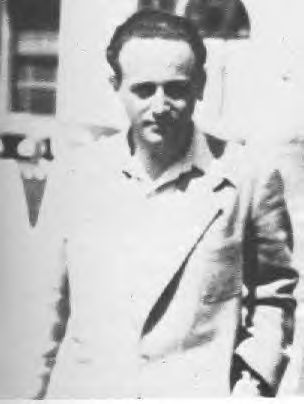 |
| Paul Celan |
 |
| Martin Heidegger |
Here is an essay--CELAN / HEIDEGGER: TRANSLATION AT THE MOUNTAIN OF DEATH--from 1988 that interprets Paul Celan's poem "Todtnauberg" (1966) which was written after an encounter between Celan and Martin Heidegger at Todtnauberg: they went for a walk after meeting at Heidegger's cottage. Heidegger was a philosopher influenced by phenomenology and, sadly, a supporter of the Nazi National Socialist party. Pierre Joris interprets the poem as Celan--a German Jew--seeking some sort of closure from Heidegger regarding the Nazi movement. Unfortunately, according to Joris, the conversation (of which no transcript was made) gave no such closure to Celan. Joris puts forth the nuanced meaning of each word very thoughtfully and clearly in the essay.
I like Joris's description of the poem. He says it is "a single sentence, divided into eight stanzas, five of which have but two lines, and is essentially composed of parataxically juxtaposed nouns and noun-clauses commenting on those nouns, seperated by commas until a single period brings the poem to a close. One gets the feeling of something cut-up, stretched-out, retracting, fore-shortening itself: nearly not a poem, the sentence feels like the remainder, the residue, of an aborted or impossible narration or relation; gnomic, "quickly scribbled notes, hopes for a poem, a private aide-mémoire understandable only to the one who took them." Lacoue-Labarthe calls it "un poème exténué, pour tout dire, déçu" - "an exhausted, even disappointed poem"."
These intersections or moments between historic figures ties together so much for me. Otherwise their thoughts and views or, more truthfully, just their names float around in my mind without a sense of temporality. Even their photographs help to pin them down. And then I can see the poem more clearly and I can see why it would be a "disappointed poem."
TODTNAUBERG
Arnica, eyebright, the
draft from the well with the
star-die on top,
in the
Hütte,
written in the book
- whose name did it record
before mine - ?
in this book
the line about
a hope, today,
for a thinker's
word
to come,
in the heart,
forest sward, unleveled,
orchis and orchis, singly,
crudeness, later, while driving,
clearly,
he who drives us, the man,
he who also hears it,
the half-
trod log-
trails on the highmoor,
humidity,
much.
No comments:
Post a Comment